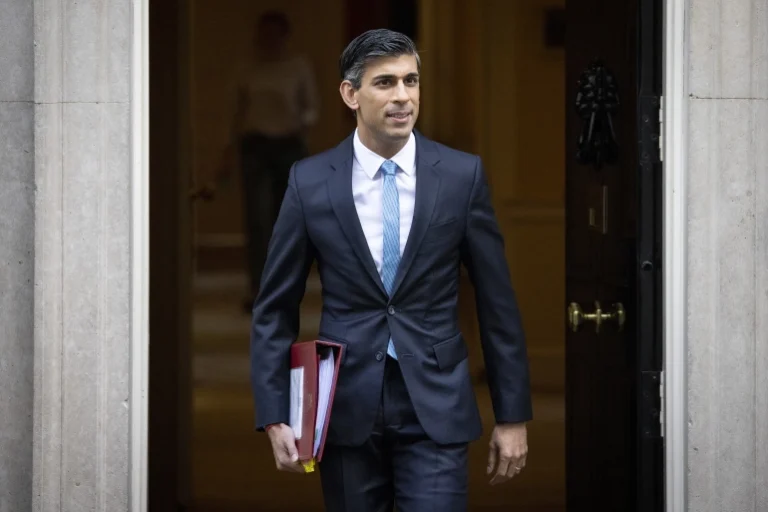The British leader, who came to power last month, promises ‘robust pragmatism’ in his first foreign policy speech.
UK’s Prime Minister Rishi Sunak came into office last month with the expectation he would initiate a phase of new, stable conditions for his party and the entire country. He must prepare a post-Brexit Britain, as the war on the European continent continues, for the new geopolitical challenges it faces.
On Monday evening, he gave his first foreign policy speech that was significant for two reasons in particular.
Rishi Sunak’s first speech as UK PM: What exactly did he say?
World leaders welcome ‘groundbreaking’ Rishi Sunak as new UK PM
Who’s in UK Prime Minister Rishi Sunak’s cabinet?
First, Sunak has had no de facto foreign policy profile. Although he has made it clear that he stands by European responsibility and for the defence of liberal values, he did so without outlining a coherent and precise vision for his foreign policy.
“The assumption was that he was close to [former Prime Minister Boris] Johnson on foreign policy, so supportive of Ukraine after Russia’s invasion of their nation, supportive of the US-UK special relationship, cautious over China’s influence on the UK,” Victoria Honeyman, an associate professor of British politics at the University of Leeds, told Al Jazeera.
“Beyond that, it’s hard to know. Although obviously, there has been discussion about whether Sunak’s ethnicity and the fact that his wife has family and business interests in India might lead to better relations with India.”
Second, unlike his immediate predecessors Johnson and Liz Truss, who were foreign ministers before becoming prime ministers, Sunak has no direct experience outside of financial markets on the international stage of geopolitics. However, the lack of experience could also be an advantage.
“[Being an unknown quantity in terms of foreign policy views] meant he was likely to be less ideological and more pragmatic. Given his background as chancellor of the Exchequer and in financial services before entering politics, we can probably also expect him to emphasise economic over security or political factors more,” James Strong, a senior lecturer in British politics and foreign policy at the Queen Mary University of London, told Al Jazeera.
Therefore, his speech on British foreign policy and the role he sees Britain playing were eagerly awaited.
Liberal values
Sunak’s speech made it clear that liberal values would play a significant role and that he did indeed seek to broaden Britain’s influence in the immediate future.
“Freedom and openness have always been the strongest forces of progress,” said Sunak’s keynote speech at the annual Lord Mayor’s Banquet in London. This, however, Sunak continued, was “never achieved by standing still”.
Britain must “do more to defend its values of freedom and openness on the world stage,” Sunak added.
Robust pragmatism” is the term Sunak used to describe his foreign policy vision for Britain, which he had already displayed during his visit to Kyiv and Ukraine’s President Volodymyr Zelenskyy last week.
The visit underscored Britain’s continued commitment to Ukraine despite the change in leadership. After all, while Britain has been at the forefront of the Western response to Russian aggression, questions about whether Sunak could maintain the defence spending commitment were raised.
But in his speech, Sunak made clear that Britain would stand by Ukraine “as long as it is necessary”.
He committed that military aid should at least be maintained next year and possibly even increased.
In addition, Sunak announced that he would provide new support to Ukraine’s air defences to protect the Ukrainian people and the critical infrastructure.
Moreover, Sunak said that the UK must “end global dependence on authoritarian regimes – starting with Russian gas”.
However, the main question was what Sunak’s position would be on China.
In contrast to the Ukraine issue, he had provided contradictory signals in the past few weeks about how he wanted to shape relations with China in the future.
Britain’s relations with China have significantly deteriorated since UK’s former Prime Minister David Cameron and China’s President Xi Jinping famously shared a pint of beer in a pub in 2016.
“The UK has, over the last five years, tended to treat China with more caution than it had previously. This was driven by concerns over spying accusations, the approach of the US to China and concerns over investment in infrastructure projects,” Honeyman said.


